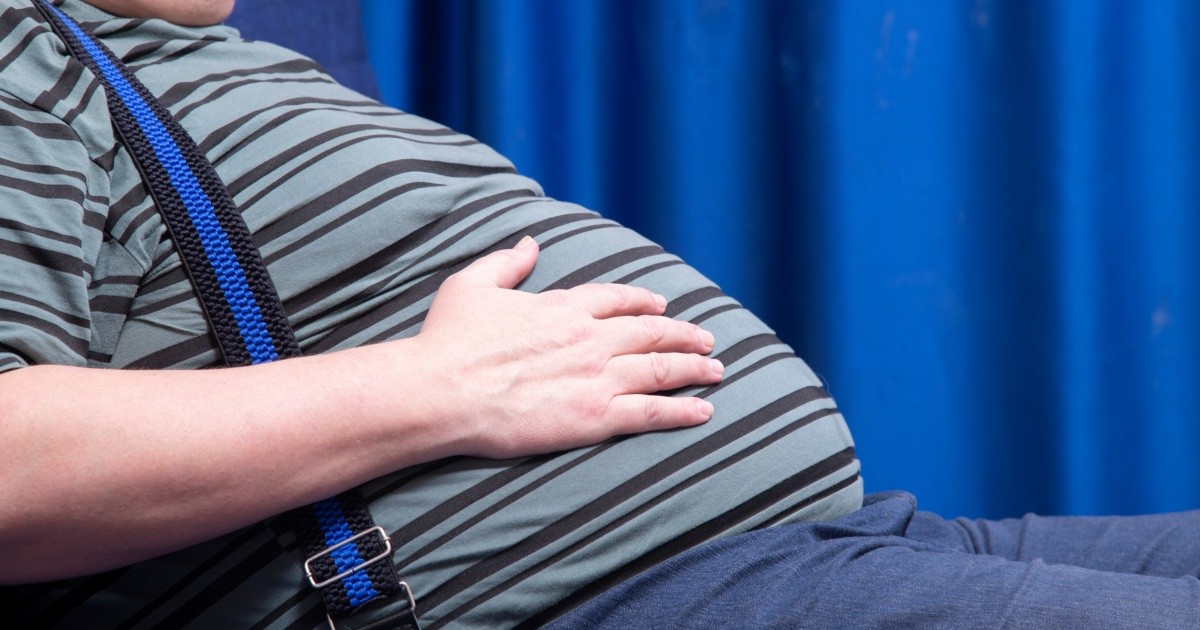Food is not just nutrition: it is also a social act. Just think about how many family, friends or business meals we have a year. This implies that this act (eating) can be influenced by individual psychological factors such as the degree of extroversion or the greater or lesser tendency towards sociability.
But also, to a large extent, the socioeconomic situation also influences what, where and with whom we eat.
Does the risk of obesity depend on personality?
The most widely used personality model is known as big five. As his own name indicates, he considers that personality can be explained by 5 big factors (OCEAN)
· Opening (EITHERpenenss)
· Responsibility (C.onciousness)
Extraversion (ANDxtraversion)
Compliance (Agreatness)
Neuroticism (No.euroticism)
Of all of them, the factor neuroticism is the one that accumulated until now more evidence to be associated with an increased risk of weight problems. At the other extreme, a high level of the factor responsibility it seems to have a protective function on weight gain and keeps us away from unhealthy diets.
Women are more obese than men
However, looking for the relationship between personality and obesity risk without considering the socioeconomic profile makes little sense. That is why the authors of this article set out to carry out a study that also take into account the demographic and economic characteristics of the individual. To do this, we used a sample of 6,562 people from waves 5 and 6 of the English Longitudinal Study of Aging (elsafor its acronym in English).
whatWe found? According to the statistical analysis carried out, a high level of the responsibility factor makes obesity less likely. On the contrary, the higher the levels of compliance and openness to new experiences, the greater the tendency to be obese.
Regarding the relationship between other demographic variables and obesity, in the British sample we reached several conclusions:
-
The older you are, the tendency to be obese is less.
-
Women are more likely to be obese than men (2.6% more).
-
People from large families are more likely to be obese. Chance goes up 2.5% more for each additional family member.
Lifestyles also influence excess weight. The study indicates that obesity is less likely among smokers and drinkers, but more likely among sedentary people, as expected.
Employees and retirees, less obese
The study also shows that a high educational level reduces the risk of being obese by 4.4%. Higher household income is also associated with less likelihood of obesity: among high-income families the risk is lower.
Being employed and being retired reduce the probability of being obese by 33% and 48% respectively. On the other hand, when the relationship between personality factors and work situation was analyzed, the only factor that showed a clear effect was conformity: those with a higher level of conformity and who were active at work showed a higher risk of being obese. In the retired population, conformity and openness to new experiences were also risk factors.
On the contrary, as we have already mentioned, responsibility reduces the risk of developing obesity, with a more intense effect in men than in women.
Regarding the neuroticism factor, its influence turned out to be moderate and in a different sense depending on the sex: increased risk of obesity for men and reduction in the female case.
The costs of obesity
Studying all the dimensions of obesity is important because we are talking about a metabolic disorder associated with a significant increase in the mortality rate as well as other alterations that lead to increased insulin resistance, type 2 diabetes, hypertension, and hypercholesterolemia. In fact, there are estimates that the savings from treating obesity is comparable to that of other chronic diseases such as coronary heart disease or diabetes.
And it is not only expensive for us at the health level: obesity has significant social costs. For example, those related to productivity losses such as absenteeism due to illness and the presenteeism (performance reduction due to not being able to work at its full capacity), both higher in obese people. Plus there’s more premature deaths among the obese.
The study we have carried out shows that there are demographic variables such as sex, age or the size of the family unit that, together with personality factors, reduce or increase the probability of developing overweight and obesity. But also certain economic conditions such as the level of income that affect what we put in our mouths. Without forgetting the lifestyle.
In any case, we must underline that this study does not allow for explanations of the correlations and probabilities found. Remember that correlation does not imply causation.
What does seem indisputable is that analyzing these variables together will help combat more effectively a public health problem so serious that the World Health Organization has named it globesity (global obesity epidemic).
Manuel Ruiz-Adame Reina, Professor of Economics – Applied Economics Dept. Currently: Visiting Research Fellow at Trinity College Dublin, University of Granada; Alessio Gaggero, Assistant Professor Doctor. Department of Quantitative Methods for Economics and Business, University of Granada Y Modou DiopProfessor in the Department of Applied Economics, University of Granada
This article was originally published on The Conversation. read the original.

















